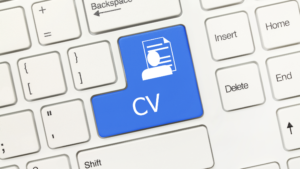How would you feel if you had a map that shows you exactly which skills to learn, when to learn them, and which steps to take next, all based on you. No more guesswork. No more scattered to-do lists.
That’s what a personalized skill roadmap does. It’s not one-size-fits-all, it’s a plan built around your strengths, goals, pace, and even your weak spots. And when AI is behind it, that roadmap can change dynamically with you.
Why does this even matter?
- Because most advice out there is generic. “Learn marketing.” “Build coding skills.” But that doesn’t help you if you already know HTML but struggle with analytics.
- Because our world is shifting fast. New roles and skills are emerging faster than ever; you need direction, not just more information.
- Because with a clear roadmap, you save time, energy, and avoid burnout. You focus where it counts.
In short: if your growth feels random now, an AI-powered roadmap can bring clarity, purpose, and momentum.
How AI Builds Your Skill Roadmap
Let’s break it down in simple steps. Here’s how AI can actually make your roadmap.
Input: What Data Does It Use?
AI doesn’t work in a vacuum. To help you, it needs information. Some common inputs:
- What skills you already have (assessments and past work)
- What your goals are (e.g. “become a UX designer,” “learn Python for data jobs”)
- Your preferences (how fast you want to learn, how many hours per week)
- Feedback as you progress (which areas you struggle with)
By collecting those bits, the AI starts seeing a picture of you.
Algorithms & Adaptive Sequencing
Once the data is in, AI organizes it:
- It picks the next logical steps you should take (what skill first, what comes after)
- It adapts the order based on your progress (if you struggle in one area, it slows or adds more practice)
- It can suggest alternative paths or shortcuts depending on your performance
This is similar to what adaptive learning systems do, they adjust lessons based on how well you’re doing.
Feedback Loops & Real-Time Adjustments
A roadmap isn’t fixed. Good AI roadmaps include:
- Checkpoints: little tests or tasks to see how you’re doing
- Re-routing: if you fall behind or get stuck, the AI changes the plan
- Predictive nudges: the system might warn you when you’re about to hit a tough spot and suggest extra prep
Because the AI keeps “watching” your journey, it can gently steer you rather than letting you drift, similar to how Google’s Career Certificates evolve your learning as you progress.
Features of Anutio’s Roadmap Tools + Key Integrations
Here are the features you’d want (and most likely Anutio offers or can offer):
Core Modules & Toolsets
- Career Mapping Tool: you upload your resume and get insight into you take quizzes or tests so Anutio knows your baseline
- Plan generator: the AI proposes a roadmap (skills, order, timelines) as you fill in your projects
- Achievement tracker: you have a system that helps you keep track of what you have achieved so you can celebrate small wins
- Effective matching: you get matched to the best opportunities based on your map on the platform
What Makes Anutio’s Approach Special
- You can customize parts (for example, pick a speed, choose alternative modules)
- It adapts, it doesn’t lock you into a rigid path
- The system leverages integrations to reduce friction, you don’t have to copy links or jump between apps
Benefits & Use Cases
Now, let’s talk about what makes all this worth your time.
1. For Students
Students can use AI roadmaps to identify what employers want before graduation. According to World Economic Forum’s Skills Outlook, adaptability and analytical thinking are now among the top skills companies value. With tools like Anutio, students can align their learning early, not after school ends.
2. For Professionals
Professionals often hit a “career wall”, that point where growth stalls. An AI roadmap helps you see which skills bridge that gap. It’s like having a career GPS. For instance, if you’re in marketing but want to move into data strategy, Anutio’s AI can suggest the exact courses or certifications to close that skill gap using data from reliable learning sources.
3. For Companies
Businesses can use AI skill maps to track team development and plan training investments wisely. Platforms like Degreed already do this at enterprise level and Anutio brings that intelligence to smaller organizations and startups, making workforce planning smarter and more affordable.
Challenges, Bias & Ethical Considerations
As powerful as AI-driven roadmaps are, there are some things we can’t ignore.
1. Data Privacy
AI systems depend on data, and that means trust matters. A solid platform should follow GDPR and ensure user consent for any personal or performance data collected.
2. Algorithmic Bias
If the dataset the AI learned from is biased, it can unintentionally favor certain skill paths. For instance, an algorithm might recommend tech-heavy roles more to men than women if its training data reflected that bias. To prevent this, companies like IBM’s AI Fairness 360 offer frameworks for ethical AI model building and tools like Anutio can integrate similar safeguards.
3. Transparency & User Control
You should always be able to see why a certain skill or path was recommended. Transparent systems, where AI explains its reasoning, build user confidence and promote long-term trust.
The Big Picture
AI can do more than just recommend jobs or suggest online courses. It can guide you, one smart step at a time, through a personalized roadmap that evolves with your goals, your pace, and your life.
If you’ve ever felt lost in your career journey, this is your sign to stop guessing and start growing intentionally.






